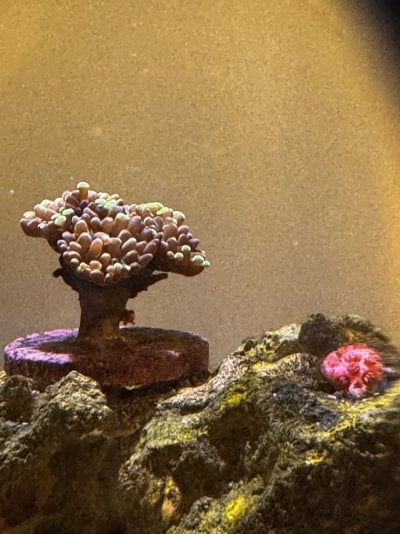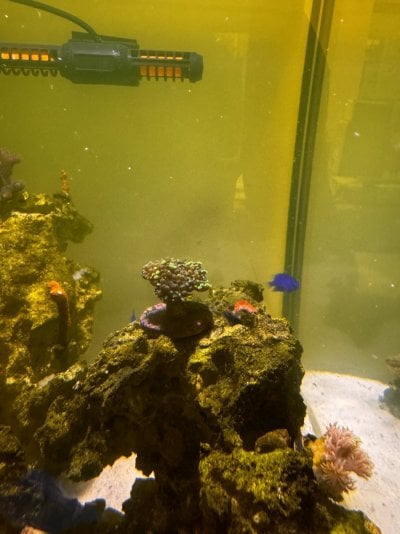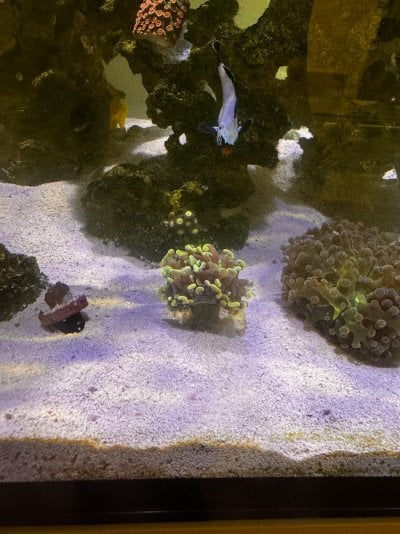Ill start out and say tank parameters are ok and relatively stable. Tank is about 5 months old.
Dkh 9.3-9.9
Ca-430-440
Mg- 1300-1350
Ph-8.1
Phos-1.0
Nitrate-7-8




My frogspawn seems to be fine(might be getting too much flow) but my hammers are/have lost color and seem to be melting. The gold one has really gone down hill but i dont have a more recent picture. The green hammer has since opened up a bit more since i moved it up higher in the tank. Par levels are around 250-200 in that spot. I moved the gold hammer there hoping to have it open up again as well but no luck.
Last week i dipped both corals again in coral rx and checked for brown algae but didnt spot any.
Any ideas? I feel the Mag. Is a bit low. I was dosing but could never get it over 1350 and was dosing an insane 200mg a day!! I ran out but the levels have remained pretty stable. I preform weekly water changes around 10-15% and i am using nyos salt crystals.
Water looks a bit dirty cause i had just dosed some phyto.
Dkh 9.3-9.9
Ca-430-440
Mg- 1300-1350
Ph-8.1
Phos-1.0
Nitrate-7-8



My frogspawn seems to be fine(might be getting too much flow) but my hammers are/have lost color and seem to be melting. The gold one has really gone down hill but i dont have a more recent picture. The green hammer has since opened up a bit more since i moved it up higher in the tank. Par levels are around 250-200 in that spot. I moved the gold hammer there hoping to have it open up again as well but no luck.
Last week i dipped both corals again in coral rx and checked for brown algae but didnt spot any.
Any ideas? I feel the Mag. Is a bit low. I was dosing but could never get it over 1350 and was dosing an insane 200mg a day!! I ran out but the levels have remained pretty stable. I preform weekly water changes around 10-15% and i am using nyos salt crystals.
Water looks a bit dirty cause i had just dosed some phyto.
























